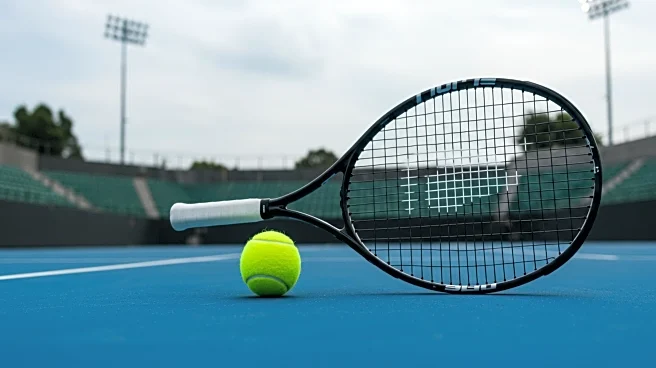What's Happening?
Carlos Alcaraz and other top tennis players faced significant challenges during the Cincinnati Open due to unpredictable match delays. Alcaraz, who was scheduled to play against Hamad Medjedovic, had to wait for the completion of a lengthy match between Francisco Comesa and Reilly Opelka, which included multiple momentum shifts and a rain delay. This situation is common in tennis, where matches do not have fixed start times, requiring players to remain prepared and focused despite uncertainties. Players like Iga Swiatek and Madison Keys have shared similar experiences, highlighting the mental and physical toll of repeated warm-ups and prolonged waiting periods.
Why It's Important?
The issue of match delays in tennis highlights the unique challenges faced by players in maintaining peak performance. These delays can affect players' mental and physical readiness, potentially impacting their performance and career longevity. The unpredictability of match start times contrasts with other sports, where schedules are more fixed, adding a layer of complexity to tennis. This situation underscores the need for potential reforms in scheduling to ensure fair competition and player well-being. The broader impact includes considerations for tournament organizers, broadcasters, and fans, who also experience disruptions due to these delays.
What's Next?
The tennis community, including governing bodies like the ATP and WTA, may need to explore solutions to mitigate the impact of match delays. This could involve revising scheduling practices or implementing policies to manage late finishes, as seen with the recent policy changes regarding late matches. Players and coaches will continue to adapt their strategies to cope with these challenges, while discussions around potential reforms may gain momentum. Stakeholders, including players, organizers, and fans, will likely engage in ongoing dialogue to address these issues and enhance the overall tennis experience.
Beyond the Headlines
The challenges of match delays in tennis also raise questions about the sport's traditional structures and the balance between maintaining its unique characteristics and adapting to modern demands. Ethical considerations around player health and fairness in competition may drive further discussions on how to evolve the sport while preserving its integrity. The cultural aspect of tennis, with its emphasis on endurance and adaptability, may also be examined as part of this broader conversation.











